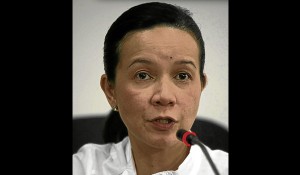The Movie and Television Review and Classification Board (MTRCB) will host in April a summit on the welfare of children working in show business, in cooperation with the Department of Labor and Employment (DOLE) and Department of Social Welfare and Development (DSWD).
MTRCB Chairperson Grace Poe Llamanzares said among the issues to be discussed would be the children’s work schedules and requirements set by the labor department.
“As it is now, when a child works, everything is confined within a definite time period,” Llamanzares explained. “He or she cannot work overtime. When the child enters into an agreement, a permit from the DOLE has to be secured.”
She said necessary steps should be taken to ensure that these regulations would be strictly followed.
Roles that children are allowed to portray would also be tackled, she said. “We don’t want to be too strict. That’s why TV network representatives and content providers have also been invited. Among the questions to be asked are: ‘Should the child portray a role that he/she may not understand?’ ‘Should the child have to pretend to be an adult, like in Goin’ Bulilit?’”
Dialogue in March
Llamanzares told the Inquirer that child psychologists and a representative from the National Council for Children’s Television (NCCT) should also participate in the summit, which she describes as a one-year-in-the-making venture. “We need to set guidelines that can help us. We don’t have the monopoly on what’s right,” she said.
The MTRCB chief also said a dialogue would be held in March to discuss “what constitutes the sexualization of a scene.”
She explained: “The perennial complaint about TV variety shows is that dancers’ outfits are too short. But when you really think about it, dancers have been wearing mini skirts since the 1960s. What makes an outfit controversial is how it is used in a scene. That’s called sexualization.”
Actor and MTRCB board member Bobby Andrews will head the committee on the treatment of a scene on television. He has been chosen, Llamanzares explained, because he has been acting since he was a teenager and he’s “quite smart.”
According to Llamanzares, the board also promotes the self-regulation of programs, which requires empowering the audience. “You have to teach the audience to be the watchdog, encourage them to field all the complaints if TV people are already going beyond their limits.”
